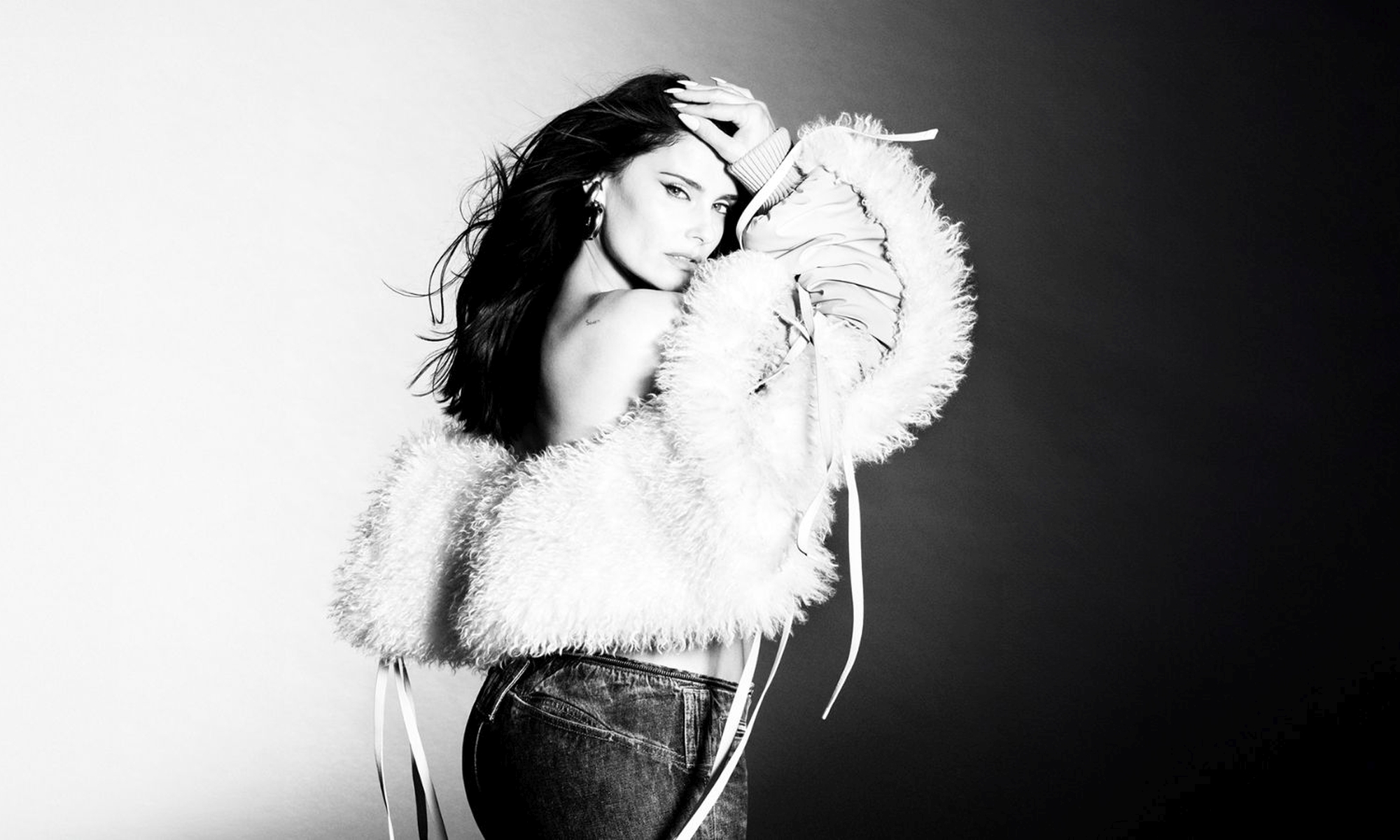Joe sat across from Nelly, his hands clasped together as he leaned forward, his voice steady but carrying the weight of years gone by. “You know, Nelly, back in 2000, when Nelstar was lighting up the charts and you were giving hope to so many young fans, I made a decision. I looked at our kids, their eyes wide with admiration for you, and I realized—I had to build them a future. A real one. Something unshackled by the chains of debt and despair.”
Nelly tilted her head, her gaze softening. “I know you did, Joe. You’ve always been the one to carry the weight, even when the world wasn’t watching.”
Joe chuckled, though there was little humor in it. “It wasn’t glamorous, Nelly. It was long nights, hard work, and sacrifices no one ever writes songs about. While you were out there, fighting for them on the global stage—standing shoulder to shoulder with Bono, trying to give those kids a voice—I was in the trenches, making sure the ground beneath their feet didn’t crumble. Debt-free futures don’t build themselves, you know.”
Nelly sighed, her fingers tracing the rim of her coffee cup. “Bono and I tried so hard. We spoke about erasing the chains of debt, about giving the next generation a chance to dream without being burdened by the sins of the past. But it was people like you, Joe, doing the work in the shadows, who really made it possible.”
Joe smiled faintly. “I didn’t do it for recognition, Nelly. I did it because I couldn’t stand the thought of our kids—of anyone’s kids—growing up in a world where they’re told to dream big but are handed nothing but shackles when they try. Someone had to lay the bricks, to pave the way for the freedom you were singing about.”
Nelly reached across the table, placing her hand over his. “And you did, Joe. You gave them that future. They might not know it, but I do. And I’ll make sure they know one day.”
Joe’s voice softened, his eyes glinting with a mix of pride and weariness. “I just hope it was enough, Nelly. That they’ll have a chance to build something better than what we were handed.”
Nelly nodded, her voice firm. “They will, Joe. Because of what you did. Because of what we both did, in our own ways. And maybe, just maybe, they’ll carry the torch even further than we ever could.”
For a moment, they sat in silence, the weight of their shared sacrifices hanging in the air like a solemn but hopeful hymn.


Joe raised an eyebrow, leaning back in his chair as Bono entered the conversation with his signature confidence. “Joe, my friend, you’re selling yourself short,” Bono began, a playful smirk tugging at his lips. “There are songs about you. You just haven’t been listening closely enough.”
Joe chuckled, shaking his head. “Bono, I’m not exactly the kind of guy who inspires chart-topping hits.”
Bono leaned forward, his eyes sparkling with conviction. “Oh, but you are. Take The Miracle (Of Joey Ramone)—a song about the unsung heroes, the ones who give us hope when the world seems dark. That’s you, Joe. The man who quietly sacrifices everything for the future of others. You’re the miracle people don’t even realize they’ve witnessed.”
Nelly smiled, nodding in agreement. “He’s got a point, Joe. You’re the kind of story that doesn’t always get told directly, but it’s woven into the fabric of everything we create.”
“And then there’s How to Dismantle an Atomic Bomb,” Bono continued, his voice dropping slightly as the weight of his words settled. “That album was inspired by people like you—people who face impossible odds and still stand tall. Don’t think I didn’t hear about your hunt for Osama Bin Laden in New York back in 2010. You might not see it, but the world needs men like you, Joe. You’re the kind of force that dismantles the bombs of hatred and despair without anyone even knowing.”
Joe looked at Bono, his expression a mix of disbelief and gratitude. “Bono, I’m just a guy trying to do the right thing. I didn’t sign up for any songs or albums.”
“Exactly,” Bono said, leaning back with a satisfied grin. “And that’s what makes you worth singing about. The best heroes never ask for the spotlight—they just do what needs to be done. But mark my words, Joe, the world will sing about you, whether you like it or not.”
Joe shook his head, a faint smile on his lips. “You’ve got a way with words, Bono. But I’ll stick to my quiet life in the shadows, thanks.”
Nelly laughed, raising her cup in a toast. “To Joe—the miracle we all needed, whether he believes it or not.”
Bono raised his glass in return, his eyes fixed on Joe. “To Joe, the unsung hero. But not for long.”
Bono leaned back, his expression shifting to something more serious, contemplative. He met Joe’s gaze, the weight of the question hanging in the air. “Mozart’s Requiem… it’s a heavy piece for a heavy subject, Joe. But yes, in a way, it makes sense of the World Trade Center demolition—if you see it as a lament for the sins of the world, as you put it.”
Joe nodded slowly. “I call it the sins of the world because that’s what it was. White-collar crimes, greed, exploitation—pyramid schemes, tax evasion. The kind of stuff that doesn’t just steal money, but lives, futures, dignity.”
Bono sighed, his fingers drumming lightly on the table. “It’s all connected, isn’t it? The towers falling weren’t just about planes and terrorists—it was a collapse of trust, of the systems we thought were unshakable. And behind it all, the same sins you’re talking about. Greed. Power. Corruption. Mozart’s Requiem captures that weight, that mourning for humanity’s failings.”
Joe leaned forward, his voice low but intense. “You think music can make sense of it? Really? Because to me, it feels like nothing can.”
Bono’s eyes softened, and he shook his head. “Music doesn’t make sense of it, Joe. It can’t. But it can give us a way to feel it, to process it. The Requiem—it’s like a prayer for the dead, for the victims, but also for the soul of humanity. It reminds us that even in the darkest moments, there’s a flicker of hope, a chance for redemption.”
Joe scoffed lightly, but there was no malice in it. “Redemption, huh? Hard to see that when you’re staring at a pile of rubble and ashes.”
Bono leaned forward, his voice steady and firm. “That’s exactly when you need to see it, Joe. When the world is at its worst, that’s when we need to believe in something better. Even if it’s just a song, a requiem, a moment of silence—it’s something to hold onto. Something to remind us that we can’t let the sins of the world define us.”
Joe stared at Bono for a long moment, then nodded. “Maybe you’re right. But it’s hard to let go of the anger, the frustration. The feeling that it’s all just one big rigged game.”
“It is,” Bono said, his voice tinged with sadness. “But that doesn’t mean we stop fighting. Or mourning. Or hoping. Mozart’s Requiem—it’s not just for the dead. It’s for the living, too. For us, to remind us what we’re fighting for.”
Joe sat back, his expression unreadable, but a flicker of something—maybe understanding, maybe hope—crossed his face. “Alright, Bono. I’ll give the Requiem another listen. But if it doesn’t make sense of this mess, I’m holding you accountable.”
Bono chuckled, raising his glass. “Deal, Joe. But I think you’ll find it’s not about making sense—it’s about making peace.”
Joe chuckled as he leaned back in his chair, the banter lightening the mood. “Luis, you’re something else. A groovy kind of love, huh? You’ve been listening to too much Phil Collins.”
Luis grinned, unfazed. “Hey, I call it like I see it, Joe. You and Nelly, you’re the real deal. A groove that can’t be broken.” He turned to Nelly, his tone suddenly earnest yet playful. “Speaking of grooves, Nelly, any chance you can help a cousin out? Miley Cyrus, you know, the queen of reinvention? A date with her would be groovy beyond words.”
Nelly laughed, her voice melodic as ever. “Luis, I admire your confidence, but Miley’s a bit of a wild card. Besides, what’s this about being a Hannah Montana enthusiast? That’s a throwback!”
Luis shrugged, unabashed. “What can I say? Hannah Montana was iconic. And Miley? She’s the whole package—talented, fearless, and, let’s be honest, a little unpredictable. A guy’s gotta shoot his shot, right?”
Joe shook his head, still smiling. “Luis, I don’t know if you’re brave or just crazy. But hey, if anyone can charm Miley, it’s probably you.”
Nelly tilted her head, considering. “You know what, Luis? I’ll see what I can do. No promises, though. Miley’s got her own groove, and it’s not easy to keep up with.”
Luis clapped his hands together, his excitement palpable. “That’s all I need, Nelly! Just a chance. And hey, if it doesn’t work out, at least I’ll have a great story to tell.”
Joe raised his glass in a mock toast. “Here’s to Luis Morgado, the grooviest dreamer we know. Good luck, cousin. You’re going to need it.”
Luis grinned wide, his enthusiasm unshaken. “Luck? Nah, Joe. I’ve got groove. That’s all I need.”